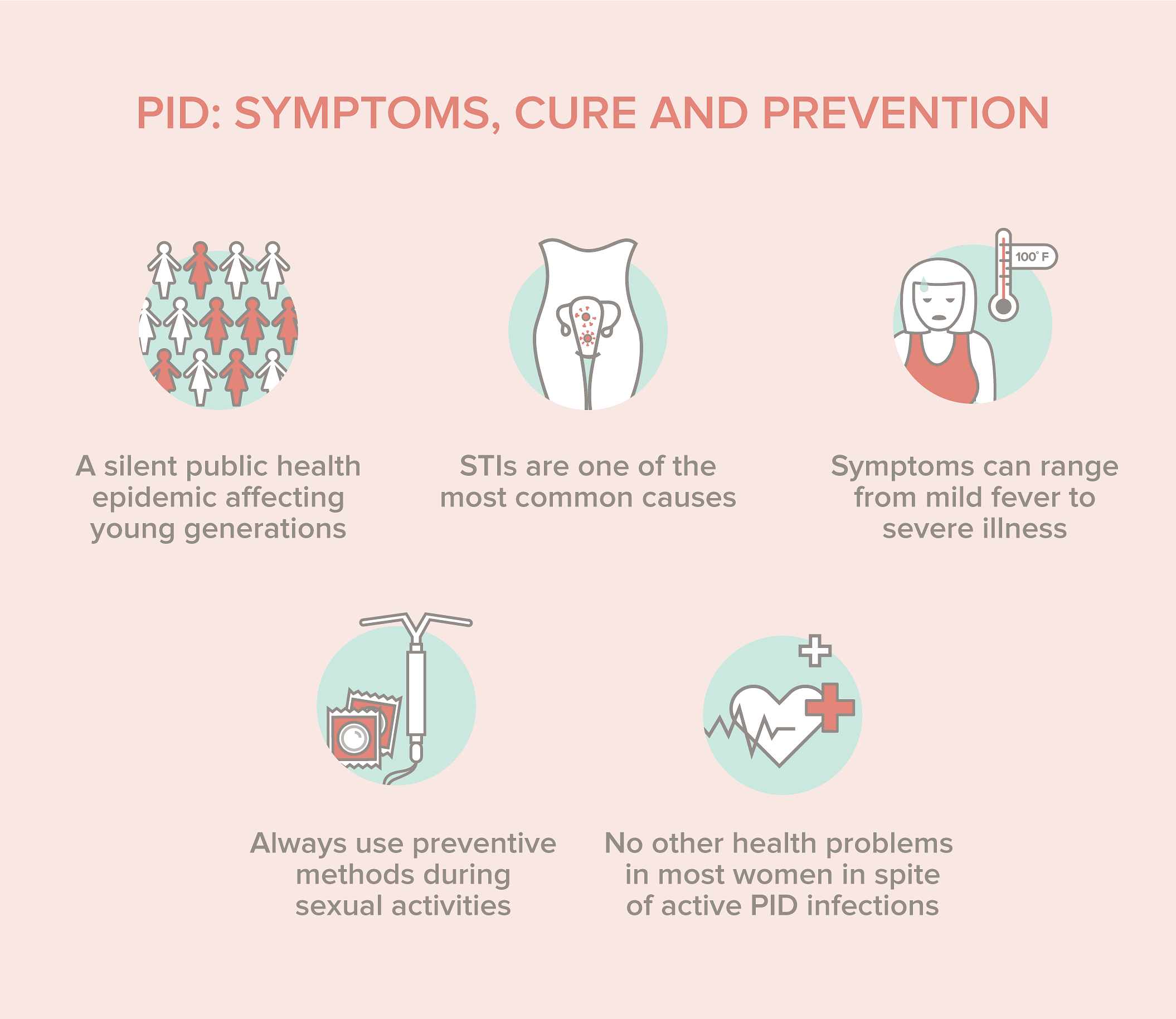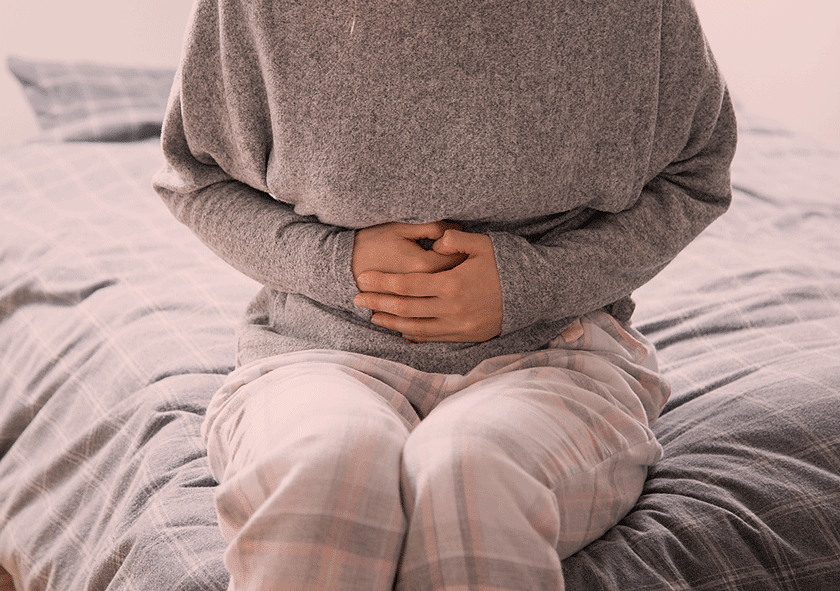Pelvic inflammatory disease (PID) is an infection of a woman’s womb (uterus), ovaries, or fallopian tubes. It can be due to an infection travelling upwards from lower genital organs such as the vagina or cervix. It is commonly acquired due to untreated sexually transmitted infections (STIs). PID can also result from organisms residing normally in the lower genital tract and getting disturbed due to medical procedures.
What causes of PID?
One of the most common causes of PID are STIs such as Chlamydia, Gonorrhoea and Mycoplasma Genitalium. PID can happen when bacteria, colonised in the cervix, travel into the uterus and fallopian tubes during a medical procedure such as childbirth, insertion of intrauterine device (IUD) and surgical termination of pregnancy.
Symptoms of PID
Symptoms of PID can range from mild to severe illness with high fever, foul smelling vaginal discharge and sudden pain in the stomach. 30-40% women with PID may experience:
1. Painful sex
2. Pelvic pain
3. Pain while peeing
4. Bleeding in between periods
5. Heavy periods
6. Yellow or green vaginal discharge with fishy or bad odour
Investigations or Tests
There is no simple test for diagnosing PID. Gynaecological examination showing tenderness on vaginal infection can give a clue.
Vaginal or cervical swabs can be sent for cultures, but negative growth does not rule out PID. In severe and complicated cases, a sonography of the pelvis can show tubo–ovarian abscesses.
What is the treatment?
It’s important to diagnose it early so that treatment can be initiated immediately to limit the damage caused by PID on a woman’s ability to conceive.
A course of a combination of antibiotics needs to be completed and one needs to avoid sex till the completion of treatment. It’s important to treat current and past sexual partners for STIs to prevent reinfection and spread of the infection in the community.
Complications
- Tubal damage after PID can give rise to difficulty to conceive. Almost 1 in 10 women who have had PID in the past have blocked, narrow or scarred fallopian tubes.
- Pregnancy can get trapped and implanted in the damaged tube. This can lead to tubal ectopic pregnancy. The pregnant woman can be at a risk of life threatening internal bleeding in such events.
- Long Term pelvic or abdominal pain
Prevention
The phrase ‘prevention is better than cure’ is 100% true when it comes to PID management. If you are sexually active, always use a condom, and get yours and your partners’ sexual health check done on a regular basis. Complete your antibiotics course if you have been treated for STIs.

PID might sound like a difficult thing to overcome but with the right kind of suggestion, prevention, and cure, it can be overcome. Practicing healthy habits and consulting the doctor on time are always good ideas.
We are constantly talking to experts to create content that you can trust. Dr. Vaishali Joshi also wrote articles about vaginal dryness and breast tenderness. You can read them right here.




I am a pid patient